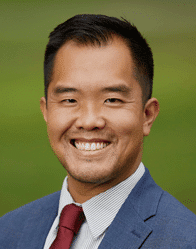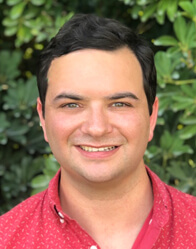Season 1 – Episode 45 – Developmental Educations Reforms
Developmental education in the U.S. focuses on enhancing students’ skills in reading, math, and writing before entering college-level courses, typically at community colleges. Reforms have been implemented for the past three decades, primarily aimed at bolstering student support and modifying the content and structure of developmental education. Ongoing research continues to explore the most effective approach to developmental education, leading to ongoing debates in the field.
Episode Transcript
Click to expand/collapse
Darren Gaddis: From CITI program, I’m Darren Gaddis, and this is On Campus Today, developmental education, community colleges and reforms across the country. I spoke with Federick Ngo, assistant professor in the Department of Educational Psychology, Leadership and Higher Education at University of Nevada, Las Vegas. As a reminder, this podcast is for educational purposes only. It is not intended to provide legal advice or guidance. You should consult with your organization’s attorneys if you have questions or concerns about relevant laws and regulations discussed in this podcast. Additionally, the views expressed in this podcast are solely those of the guests and do not represent the views of their employer.
Hi, Federick.
Federick Ngo: Hi, Darren.
Darren Gaddis: Thank you for joining me today.
Federick Ngo: No problem. Thanks for the invitation.
Darren Gaddis: To get us started today, would you mind just explaining your own background and research?
Federick Ngo: Sure. Well, thanks for having me. My name is Federick Ngo, I am soon to be promoted to associate professor at the University of Nevada, Las Vegas. I teach in our graduate programs in high higher education, which is a master’s and a doctoral program in higher education. My research is primarily in the area of higher education policy and the policy finance and economics of higher education. Largely, my work has focused on community colleges and policies and practices that support community college students in terms of achieving their academic and career goals. I’ve largely studied developmental education in community colleges, and so I’ve been tracking the reforms that have been happening, and I’m very interested in seeing how policies and how colleges implement policies relates to improving college completion and student success.
Darren Gaddis: Our conversation today is centered around developmental education. To get us started, what is developmental education and how is it utilized at community colleges across the United States?
Federick Ngo: Yeah, so developmental education can be thought of as one of the main functions of community colleges. Community colleges really are trying to do a lot of things for a lot of different types of students and people in our society who are interested in pursuing higher education. So, one function of community colleges is helping students transfer to a four year institution. Another function, for example, is career and technical education. Community colleges offer a lot of vocationally oriented coursework and certifications. Community colleges also just offer the general local communities continuing education opportunities like art classes and physical education classes and language classes.
And then there’s also this function of development and remediation. And so, developmental education, historically, has been this set of course offerings or programming designed to help students who might be academically under-prepared, or thought to be academically under-prepared, to transition into college. And so, typically, this is math and English courses that are below college level. These courses are supposed to help students make the transition to college, get anything, get any kind of support they needed and remediation they needed before taking more advanced courses.
Darren Gaddis: What are the benefits of developmental education at community colleges, and do they help students get more prepared for college?
Federick Ngo: Right. I would say this was a big emphasis of researchers starting about 10 to 15 years ago, and they were really interested in looking at the impact of developmental education. A big literature review and synthesis of all of that research generally showed that it was not helping in the ways that practitioners and policymakers expected. Developmental education, what it’s supposed to do is, it’s supposed to take students who are thought to be under-prepared in math and English and give them coursework, an additional semester or two of coursework, that helps them get caught up so that they are equipped to pass successfully like a college level course. So there’s this development function of the community college developmental education programs, it’s supposed to remediate skills, learn the college knowledge and college skills necessary to be able to succeed. But I think researchers such as myself and plenty of other folks have identified the ways that developmental education, the way that it’s structured, has actually hurt students in some ways.
So the way that it’s been structured is a set of prerequisite courses. So you show up on enrollment day at the local community college, you’re oftentimes referred to some kind of placement test, that test tells you what level you should start at. And you can imagine, it would take students a year, sometimes even two years or more, to get through that sequence of prerequisite courses before you can even enroll in a college level course. And one of the issues that researchers have identified is just the time and the cost of being required to take all these prerequisite courses before you can even get exposure to a college level course in math and English. The research has identified that those courses weren’t ineffective, it was more that the prerequisite sequence was so long, students would not come back to try the next course in the sequence.
Darren Gaddis: Broadly, what is the argument for developmental education reform at community colleges and what are some potential reforms or what could these reforms look like at community colleges?
Federick Ngo: So there’s a couple different areas of intervention. So the first I’ll talk about is the placement process and placement system. So there was some big studies about 10 years ago that came out showing that some of the most commonly used placement tests were, in fact, making a lot of errors. Students who could have passed college level courses were being placed into lower level courses, developmental courses. Because of that, some states and community college systems have moved away from using placement tests as the main way of sorting students into courses. Now, states like California are mandating what’s called multiple measures. So the use of multiple pieces of information about a student to kind of make the best decision about what course they could start in. And in California, a lot of that is based on your high school GPA, so how well you did in high school, and also the types of math courses you’ve already taken in past.
And so, if students can show that they’ve taken this course and got a certain grade in it, they’re most often allowed to enroll directly in the college level course. Another type of reform is trying to address the curricular patterns or modes of delivery of developmental education, and one of the most popular ones right now is called the co-requisite model. And the co-requisite model is when students can enroll directly in a college level course, but some students may be asked to take an additional support course, called the co-requisite course, at the same time, and in this one or two unit course, they can get additional support as needed to help them be more successful in their college level course.
Darren Gaddis: Are there any potential negative consequences of reforming developmental education at community colleges?
Federick Ngo: This is kind of where a lot of the research focus, now, is. So there have been several states that have engaged in these big transformations like Florida. Now, most students in that state that went to Florida high schools don’t have to enroll in developmental courses. I mentioned California is using multiple measures to make these decisions instead of placement tests, and most students, or at least a larger number of students now are enrolling directly in the college level.
Darren Gaddis: What are the potential drawbacks?
Federick Ngo: I think, obviously, people may be concerned about whether students actually are prepared to do well in college level course directly. One area of research that I’ve worked on is how these reforms might exacerbate certain types of inequality depending on how they’re implemented. For example, I did a study with a colleague, Holly Kasowitz, on self placement, which is when colleges allow students to kind of make the decision for themselves where they should start in the math sequence. And one of the most interesting things there was, some students such as women and black students, Latinx students, were actually more likely to place themselves into a lower level course than before, than comparable students who use a placement test. We have to be thinking about how these reforms interact with other types of inequities in the college access space.
Darren Gaddis: Largely speaking, how do administrators, faculty, and staff members feel about reforming developmental education at community colleges?
Federick Ngo: Yeah, this is a really interesting and important question. I’m part of a research team right now studying a community college district in California, both using quantitative and qualitative methods. And so, the quantitative team is kind of studying the impact of the policy over time, and the qualitative team has really been focused on understanding exactly this, how do administrators, district leaders, faculty, we haven’t gotten to students, but that’s next, but how do these different groups of people feel about the reform? And I think what’s really interesting to me is that it’s kind of very bifurcated. There’s people who are really behind it, people who saw the harms of developmental education and really wanted to try something different. On the other hand, there are a lot of faculty, both in math and English, who were really concerned about just throwing students into college level courses in California. Many of them were very upset about it. And having been in the classroom myself, as a high school teacher in the past, I can see where they’re coming from.
In California, at least, this was a state level mandate to saying that California community colleges could no longer really offer and place many students into developmental courses. And so, I think from a educator and faculty perspective, I can see how they may feel like their expertise is being challenged and sort of their thought about how to best educate students is being challenged.
Darren Gaddis: What else would you like us to know about developmental education at community colleges across the United States?
Federick Ngo: I think we’re in an exciting time of experimentation. I think the evidence is pretty robust, showing that there were a lot of harms being done by the previous system of developmental education and prerequisite education, and many students were not really making it through to complete their college level math and English requirements. And so, it’s exciting to see big states, California, Texas, Florida, New York, trying out different ways of supporting students in this transition to the community college system and really helping students to achieve what they set out to achieve.
Darren Gaddis: Federick, thank you for joining me today.
Federick Ngo: Thank you so much.
Darren Gaddis: Be sure to follow, like and subscribe to On Campus with CITI Program to stay in the know. If you enjoyed this podcast, you might also be interested in other podcasts from CITI Program, including On Research and On Tech Ethics. You can listen to all of our podcasts on Apple podcast, Spotify, and other streaming services. I also invite you to review our content offerings regularly as we are continually adding new courses, subscriptions, and webinars that may be of interest to you, like CITI Program’s, Qualitative Data Analysis course.
How to Listen and Subscribe to the Podcast
You can find On Campus with CITI Program available from several of the most popular podcast services. Subscribe on your favorite platform to receive updates when episodes are newly released. You can also subscribe to this podcast, by pasting “https://feeds.buzzsprout.com/1896915.rss” into your your podcast apps.
Recent Episodes
- Episode 44: LGBTQIA+ Individuals in Higher Education
- Episode 43: Student Housing, Resource, and Partnerships
- Episode 42: Housing Options for Students Today
- Episode 41: Community Colleges and Baccalaureate Programs
Meet the Guest

Federick Ngo, PhD – University of Nevada, Las Vegas
Federick Ngo is Associate Professor of Higher Education in the College of Education at the University of Nevada, Las Vegas. He researches the impact of higher education policy on college access and success, with a focus on community colleges.
Meet the Host
Darren Gaddis, Host, On Campus Podcast – CITI Program
He is the host of the CITI Program’s higher education podcast. Mr. Gaddis received his BA from University of North Florida, MA from The George Washington University, and is currently a doctoral student at Florida State University.








